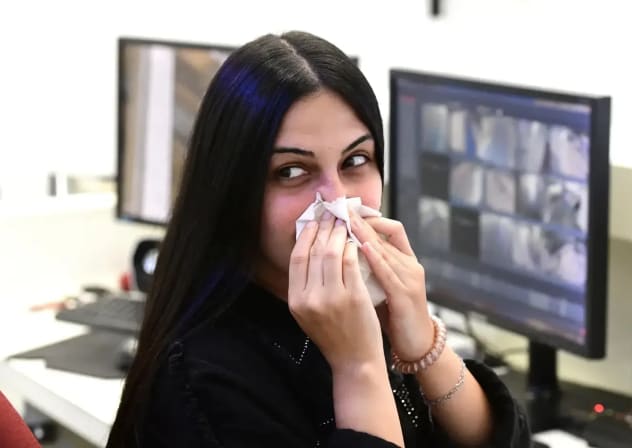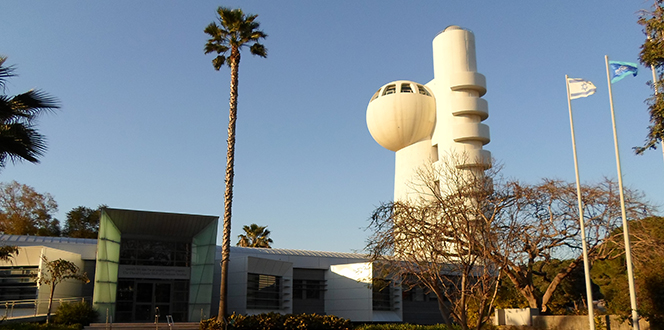(photo credit: REUVEN CASTRO)
ByDR. KAY ALKARA
It's mid-July, and people are suffering from colds, fatigue, and even fever. What’s the real reason for all this, and how can we avoid getting sick in the summer?
A woman feeling sick
The Israeli summer brings with it blazing sun, high temperatures, and unbearable humidity, which is why the air conditioner becomes everyone’s best friend. But alongside the pleasant sensation it provides, quite a few people are actually reporting cold-like symptoms: Runny nose, sore throat, cough, and even a mild fever. Is it the flu? An allergy? Or something else entirely?
Meet “air conditioner flu” – not an official illness, but a colloquial term for cold-like symptoms that appear right in the middle of July.
What is “air conditioner flu”?
“Air conditioner flu” is not a new virus or a recognized medical diagnosis, but rather a nickname for a condition in which people experience respiratory or general symptoms as a result of prolonged exposure to air conditioning. It’s a common phenomenon, especially among people who work in enclosed spaces or spend extended periods in heavily air-conditioned environments.
Why seniors are rushing to get this Internet box – here’s why!Sponsored by Smart Wifi
Compare broadband deals and save money by switchingSponsored by This is Money
What Is Health Insurance and Why Is It Important?Sponsored by trakinraj
What causes the phenomenon?
1. Dry air
Air conditioning reduces humidity levels, which dries out the nasal, throat, and eye membranes. This dryness harms the body’s defense mechanisms and makes it easier for contaminants to enter.
2. Extreme temperature differences
Rapid shifts from heavy outdoor heat to strong indoor cold—and back again—create physical stress on the body, weaken the immune system, and may trigger cold symptoms.
IDF, Shin Bet kill Hamas terrorist Taha Abu Ayadeh in Gaza's Khan YunisAbu Ayadeh led a platoon of Nukhba terrorists during Hamas's October 7 massacre, infiltrating a gas station in Kibbutz Magen, the IDF stated.Jpost - Israel News
Sonar confirms mastodon carving at Lake Michigan’s ancient siteHigh-resolution imaging shows a human-made mile-long boulder array 12 m under Grand Traverse Bay, predating Stonehenge by 4,000 years.JPost - archaeology
Was extending IDF Gaza ops. in Gaza worth it? Assessing costs and gainsHow much more did Israel really defeat Hamas than it had already done, and how much did it lose in doing so?Jpost - Israel News
3. Poor air conditioner maintenance
Unclean filters can spread dust, bacteria, mold, and allergens, which irritate the respiratory system and trigger allergic reactions.
4. Poor ventilation and closed spaces
Spending long periods in a closed room with other people increases the risk of virus transmission, especially when there’s insufficient air circulation.
A woman blowing her nose (credit: DimaBerlin. Via Shutterstock)
What are the typical symptoms?
Runny or congested nose
Sore throat
Dry or phlegmy cough
Fatigue
Chills
Occasionally: Mild fever
How can it be prevented or alleviated?
Symptoms usually subside within a few days, but in some cases, they may worsen or last longer—especially if exposure to the same conditions continues.
• Keep room temperature balanced – it’s recommended to set the A/C to 24–25°C, not freezing cold.
• Avoid sharp transitions – if you exit an air-conditioned room, spend a few moments in an intermediate space (like a lobby or hallway).
• Clean the A/C filters – at least once a month.
• Use a cool mist humidifier – to maintain reasonable humidity in the air.
• Drink water regularly – dryness increases the risk of hoarseness, throat irritation, and dehydration.
• Ventilate the room – when possible, open a window or door for a few minutes a day.
When should you see a doctor?
If you experience high fever, severe pain, shortness of breath, or symptoms lasting more than 4–5 days, it’s recommended to see a doctor for evaluation. It may be a viral or bacterial infection unrelated to the A/C, and could require targeted treatment.
In conclusion, “air conditioner flu” is a known and common phenomenon, especially in Israel’s hot climate. By maintaining a proper balance between heat and cold, regularly servicing air conditioning systems, and staying alert to symptoms, you can get through the summer safely—even with the A/C on.
Dr. Kay Alkara is a family physician in the northern district of Maccabi Healthcare Services.


















